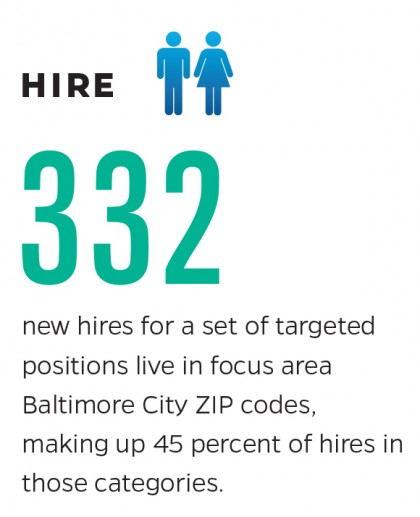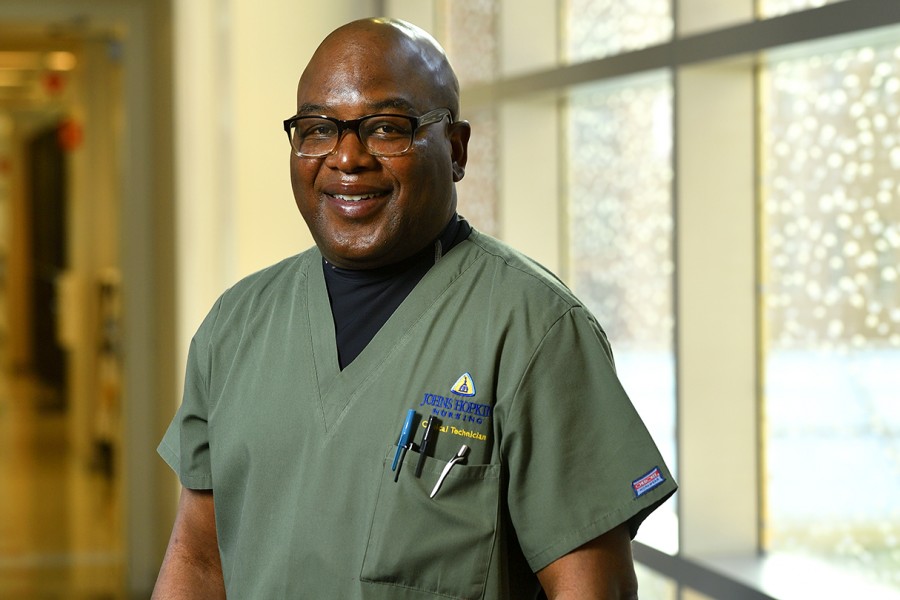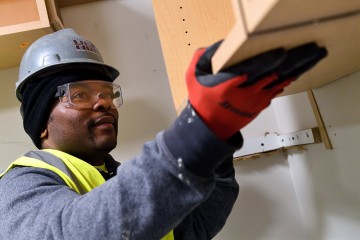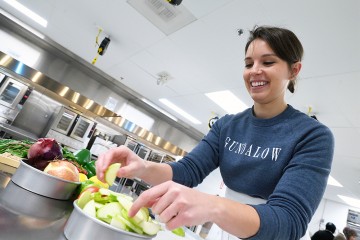At 55, Clayton "Smitty" Smith has found himself brushing up on his algebra.
It's the first time he's revisited the subject since his teen years, but the course is one of several prerequisites on his road to becoming a nurse. With his current load—college classes by day, followed by night shifts at the Johns Hopkins Hospital—Smith sees himself reaching that end goal in about three years.
Since he already works for and among nurses every day, the vision is fully tangible. Still, Smith says: "No way in the world did I think two years ago this is where I'd be."
Video credit: Derek Valcourt and Dave Schmelick
That's when Smith decided he was in need of a major life change. He'd spent 18 years driving trucks for a private trash company. The pay was good, he says, but the long hours behind the wheel "took a very hard toll on my body, mind, and spirit."
With his six kids fully grown, though, he felt new freedom to move on. Following the lead of two of his children, he found work at the Johns Hopkins Hospital in East Baltimore, not far from the home he shares with his wife of 27 years.
Smith started out in linen delivery, instantly shedding about 15 pounds while walking through the hospital each day to deliver clean sheets and towels to each unit. Since then, he's advanced to become a clinical care technician, assisting nurses in the Neurosciences Critical Care Unit.
"In two years, I've leaped through four different jobs, each paying more money and giving me more skills," he says.
One of those jobs, in patient transport, convinced Smith to pursue nursing. The personal connections he developed with patients gave him a new sense of purpose.
"When I got to talk to people, help people, I decided, 'Hey, this is what I love to do,'" he says.
Smith's trajectory exemplifies the type of success story Johns Hopkins hopes to replicate many times over with its HopkinsLocal initiative, an effort to boost economic opportunity in the city through construction, purchasing, and hiring activities. According to a new progress report, in the first two years of the program, the university and health system hired more than 600 residents into certain targeted positions from areas of focus in Baltimore City.

At Hopkins, Smith found critical support—in both morale and career coaching—from the Skills Enhancement Program at Hopkins Medicine. Another program, SOARING, gave him credentials he needed for his current job.
Now, Smith says, Hopkins is helping support his studies at the Community College of Baltimore County–Essex as he completes the prerequisite courses required to apply to nursing school.
As a young man, life responsibilities prevented Smith from finishing college, he says. Before trucking, he spent four years in the military stationed in Biloxi, Mississippi—the only period of his life not spent living in Baltimore.
Now back in Baltimore, Smith says he's making the best use possible of the pipeline for advancement he's found here.
"I've got a new lease on life—I'm starting out all over again," he says. "I just wish I knew about all this when I was 17 or 18."
Posted in University News, Community
Tagged community, baltimore, hopkinslocal











